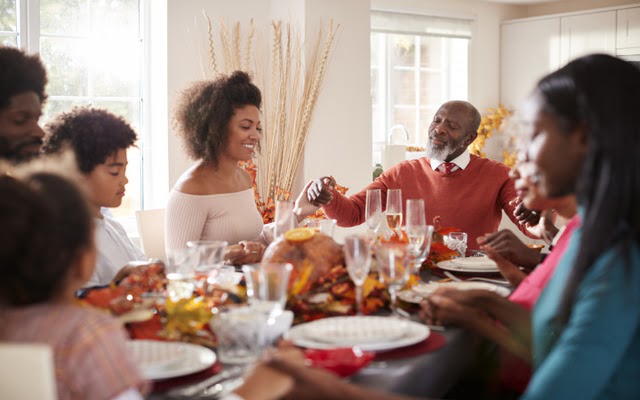
Family. Feasts. Gifts. Black, red, and green candles. If you’re unsure what we’re talking about, then you’re in for a treat. Why? Because today’s Wonder of the Day is all about Kwanzaa!
Kwanzaa is a holiday that was created in 1966 by Dr. Maulana Karenga. It was designed for Black Americans to celebrate their African heritage and to foster a sense of community among people of African ancestry.
If your family celebrates Kwanzaa, you know that it’s a special time of year. The celebration begins on December 26, when friends and families come together to light the kinara.
The kinara is a special candle holder that holds one black, three red, and three green candles. These candles represent the seven principles of Kwanzaa. After lighting each candle, families spend time discussing the principle and how it can impact their lives.
The seven principles of Kwanzaa include:
-
Umoja (unity),
-
Kujichagulia (self-determination),
-
Ujima (collective work and responsibility),
-
Ujamaa (cooperative economics),
-
Nia (purpose),
-
Kuumba (creativity), and
-
Imani (faith).
After lighting the candles, families participate in various traditions. Many read or recite poems or quotes from influential members of the Black community. Some families also sing, dance, and play drums as part of their celebration. And, of course, they enjoy a feast together.
The name “Kwanzaa” comes from the Swahili phrase “matunda ya kwanza,” which means “first fruits” or “first harvest” in English. Fruits, vegetables, and nuts play a significant role in the celebration. Many families place these items on a special mat called the mkeka. Corn is also important and symbolizes children as the hope for the family’s future. An ear of corn is often added to the mkeka for each child at the Kwanzaa celebration.
Honoring ancestors is an integral part of Kwanzaa. On the sixth night, many people participate in the unity cup tradition. Each family member drinks from the same cup as a symbol of unity and remembrance.
Some families have a special meal each night of Kwanzaa. However, the largest feast, called karamu, takes place on the final evening of January 1. This feast is often followed by gift giving. Family members exchange handmade or educational gifts that are related to arts, culture, and heritage, as a way to conclude the Kwanzaa tradition.
Do you celebrate Kwanzaa? If so, what is your favorite part of the celebration? If not, do you notice any similarities between Kwanzaa and one of your family traditions?
Try It Out
Get a friend or family member to assist you with the following activities.
Kwanzaa is a significant celebration that emphasizes family, culture, and shared heritage. The BBC has provided an article on Kwanzaa and its historical background. If you don’t celebrate Kwanzaa, what other winter holidays do you partake in? Perhaps you observe Hanukkah, Saint Lucia Day, or Christmas. How do these celebrations compare to those of Kwanzaa? Share intriguing facts with a friend or family member.
Kwanzaa occurs from December 26 to January 1. During each of these days, take a moment to reflect and write about one of the seven principles of Kwanzaa, as mentioned in today’s Wonder. For instance, on December 26, focus on Umoja (unity). What does unity mean to you? If you celebrate Kwanzaa, how does your family celebrate unity on this day? If not, what other holiday celebrations do you participate in that emphasize unity? By the end of the seven days, you will have reflected on each principle, and you can share your thoughts with a friend or family member.
In today’s Wonder, you discovered the kinara, a special candle holder with green, red, and black candles. Now, it’s time to create your own kinara with the guidance of a trusted adult or family member. Follow the instructions provided by PBS to construct a kinara using cardboard tubes and tissue paper.
Wonder Sources
- https://nmaahc.si.edu/blog-post/seven-principles-kwanzaa (accessed 04 Dec. 2021)
- https://www.officialkwanzaawebsite.org/ (accessed 04 Dec. 2021)
- https://www.interexchange.org/articles/career-training-usa/history-principles-and-symbols-of-kwanzaa/ (accessed 04 Dec. 2021)
- https://www.history.com/topics/holidays/kwanzaa-history (accessed 04 Dec. 2021)
- https://learnersdictionary.com/ (accessed 04 Dec. 2021)





Leave a Reply